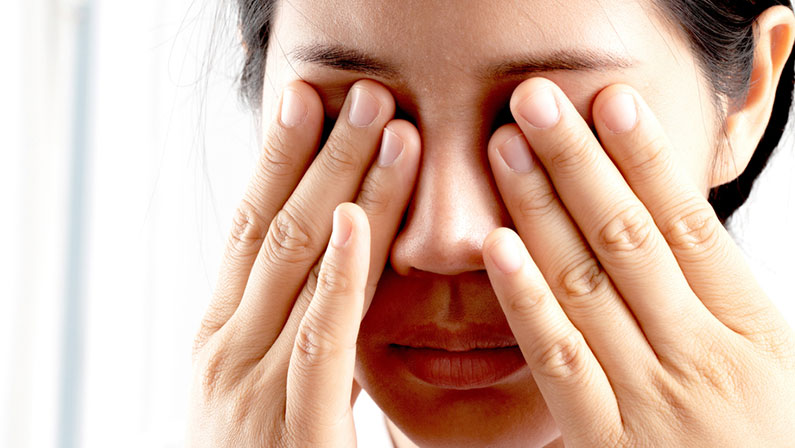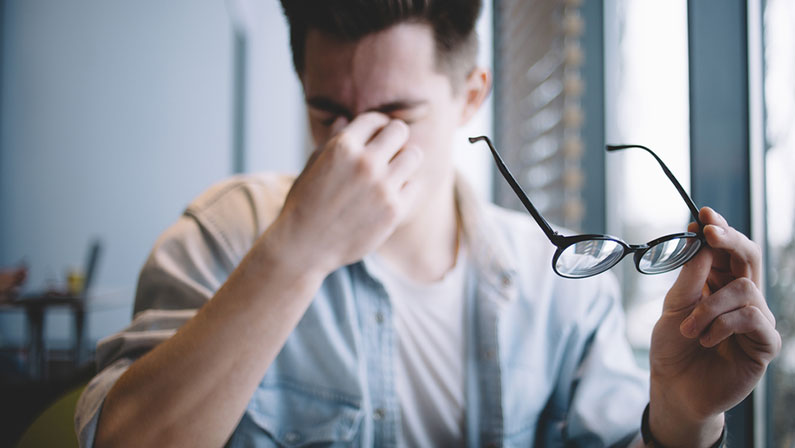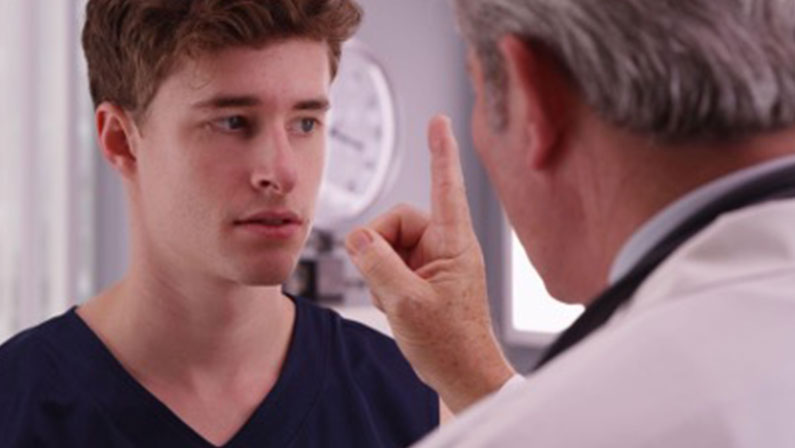A concussion, a type of traumatic brain injury, can have a range of effects on the body, including vision. Understanding how long vision problems may persist after a concussion is crucial for those on the road to recovery. In this article, we’ll delve into the various aspects of post-concussion vision problems and what individuals can expect.
Can a concussion cause vision problems?
A concussion can indeed lead to a variety of vision problems. The impact on the brain can disrupt the normal functioning of the visual system, causing a range of symptoms that affect one’s ability to see clearly.
How does a concussion affect vision?
After a concussion, the brain’s processing of visual information may be impaired. This can result in a variety of vision-related issues, which can vary from person to person.
What are post-concussion vision problems?
Post-concussion vision problems refer to a range of visual disturbances that occur after sustaining a concussion or traumatic brain injury. These can include issues like blurry vision, double vision, difficulty focusing, post-concussion eye dilation, and more.
Kinds of Vision Symptoms That Can Occur After Concussion

After sustaining a concussion, individuals may experience a range of distressing vision-related symptoms that stem from the disruption of normal brain function.
These vision changes after concussion can manifest in various ways, including blurry vision, double vision, difficulty reading, eye strain or pain, and challenges in focusing on objects at close distances, all of which can significantly impact daily activities.
Blurry Vision
One of the most common vision issues is blurry vision after head injury or post-concussion. This can occur due to the disruption of the brain’s ability to process visual information accurately.
Double Vision
Concussions can lead to double vision (double vision concussion), a condition where a person sees two images of a single object. This occurs because the eyes may not be working together as they should.
Difficulty Reading
Some individuals may experience difficulty reading after a concussion. This can be due to challenges in focusing or tracking words on a page.
Eye Strain or Pain
Eye strain or pain may also be present, particularly during activities that require sustained visual concentration, such as reading or using a computer.
Difficulty Focusing at Near Distance
Concussions can affect the ability to focus on objects at close distances. This can be particularly troublesome for tasks that require detailed or intricate visual work.
What are the symptoms of post-concussion vision problems?
Apart from the specific vision-related symptoms or vision problems after concussion mentioned above, individuals may also experience these additional symptoms. These can compound the challenges individuals face in their daily activities, underscoring the importance of seeking timely medical attention and appropriate treatment for post-concussion vision problems.
- Headaches
- Dizziness
- Light sensitivity
How is post-concussion vision problems diagnosed?
A comprehensive evaluation by a healthcare professional, often including ophthalmologists and neurologists, is essential. Specialized tests may be conducted to assess visual acuity, eye movement, focusing abilities, and other aspects of visual function.

Here are the key steps typically taken in the diagnosis process:
- Medical History Review: Understanding the patient’s medical background, including any history of concussions or visual conditions, provides crucial context for the evaluation.
- Symptom Assessment: A detailed inquiry into specific visual symptoms, such as blurry vision, double vision, and difficulty focusing, helps pinpoint areas of concern.
- Visual Acuity Testing: This fundamental eye examination assesses the patient’s ability to see clearly at various distances, identifying any refractive errors or visual acuity deficits.
- Eye Movement Evaluation: Testing the coordination and smoothness of eye movements helps reveal any difficulties in tracking or following objects, which can be indicative of underlying issues.
- Pupil Examination and Light Sensitivity Assessment: Evaluating the pupils’ size, shape, and reactivity to light, along with assessing sensitivity to different light levels, provides valuable information about neurological and visual function.
Treatments That Improve Vision Following A Concussion
By combining these treatments, individuals can significantly improve their post-concussion vision problems, ultimately enhancing their overall quality of life and ability to engage in daily activities. It’s important to note that the specific treatment plan will be tailored to each individual’s unique needs and symptoms.
Vision Therapy
Concussion vision therapy is a specialized form of rehabilitation that involves a series of exercises and techniques designed to enhance visual skills and alleviate symptoms associated with post-concussion vision problems.
Optical Aids
These may include prescription glasses, prisms, or other specialized lenses that are prescribed to improve vision and provide more comfortable visual experiences.
Coordination Exercises
Specifically designed exercises that aim to improve the coordination between the eyes, allowing for better teaming and tracking of visual information.
Focusing Exercises
These exercises focus on training the eye muscles to adjust focus efficiently, helping individuals regain the ability to shift focus between near and far distances.
Visual Scanning and Tracking Activities
Activities that retrain the eyes to smoothly follow moving objects, which is crucial for tasks like reading and driving.
How long does it take for post-concussion vision problems to go away?
The duration of post-concussion vision problems can vary widely depending on the individual, the severity of the concussion, and the specific nature of the vision issues. Some may experience a resolution of symptoms within a few weeks, while others may require several months of therapy and recovery.
In most cases, with proper treatment and rehabilitation, post-concussion vision problems can be significantly improved, if not completely resolved. However, in rare cases, some individuals may experience long-term visual challenges.

How do you know if you should go to the doctor after a concussion?
It is crucial to seek medical attention after a concussion, especially if there are vision-related symptoms. An emergency care center like Aether Health – SilverLake ER can provide a proper assessment and recommend appropriate treatment, which may include vision therapy.
How important is follow-up care in the treatment of post-concussion vision problems?
Follow-up care is crucial in monitoring progress and making any necessary adjustments to the treatment plan. It ensures that patients are on track to achieve the best possible outcome.
Navigating Post-Concussion Vision Challenges with Expert Care
While vision problems after a concussion can be concerning, they are often manageable with the right treatment and rehabilitation. Understanding the potential duration of these issues and seeking timely medical advice can significantly improve the chances of a full recovery. Remember, every individual’s journey to recovery is unique, and patience is key in the process of healing post-concussion vision problems.
Aether Health – SilverLake ER in Pearland, TX employs a comprehensive approach to treating post-concussion vision problems. Their skilled team, including neurologists, ophthalmologists, and vision therapists, conducts thorough evaluations and specialized tests. Contact them today.




